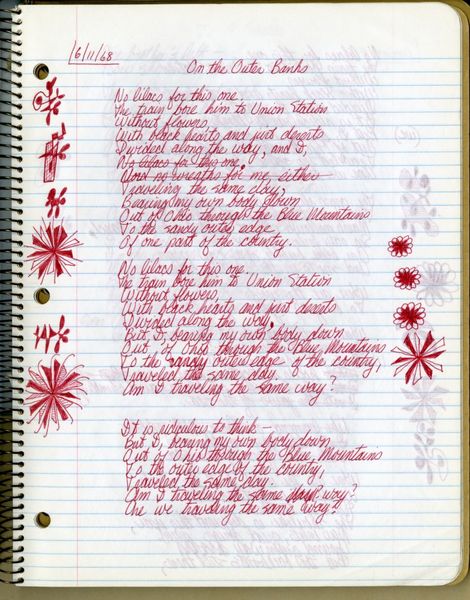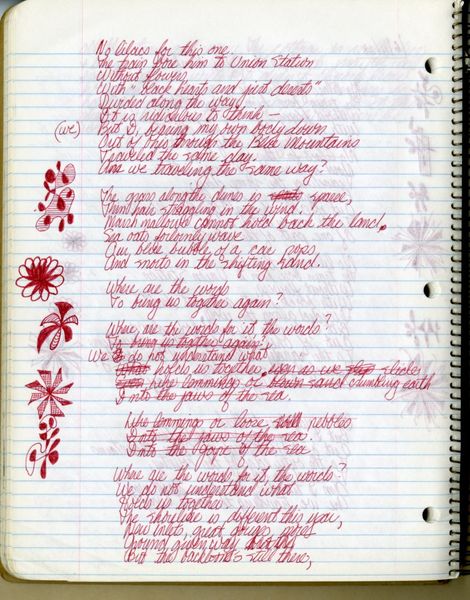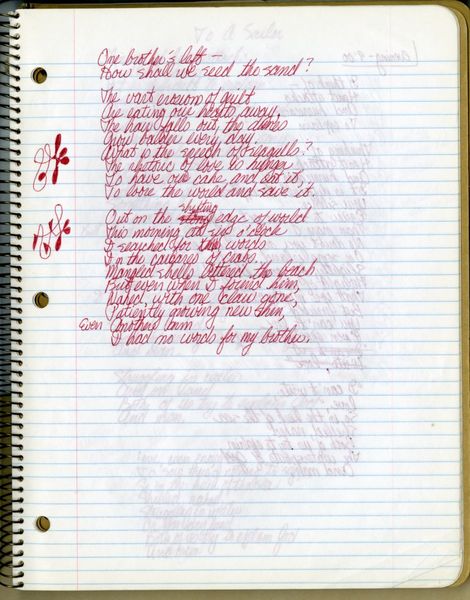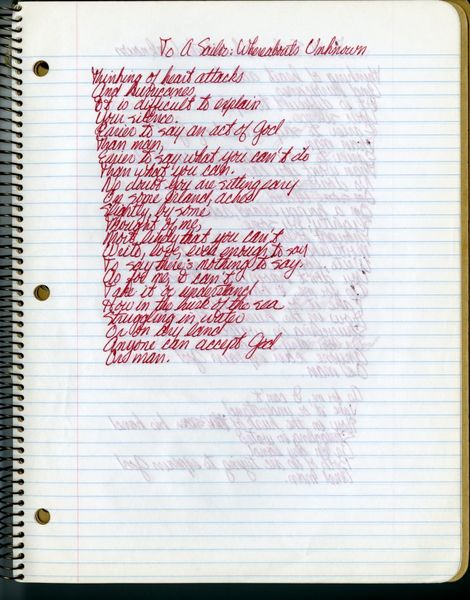June 11, 1968
The published version of the poem is dated June 9, 1968, days after Robert Kennedy's assassination on June 6. The opening of this early draft of "The Outer Banks" references Whitman's elegy for Abraham Lincoln "When Lilacs Last in the Dooryard Bloom'd," thus comparing the assissinations of Lincoln and Robert Kennedy. At this point, the poem is very rooted in its political and historic moment also referencing "the one brother left," presumably Edward Kennedy.
Later that evening Goedicke drafted a poem titled "To a Sailor" that arises out of Goedicke's anxiety over the absence of her lover. They were to rendevous the previous day. In it, the speaker's lover is marked by the fact that he doesn't write "even enough to say there's nothing to say." This relationship between love, speech, and absence is reflected in "The Outer Banks" by the refrain "the rhetoric of love is hunger."
It is not uncommon for Goedicke to start and restart a poem or a section of a poem several times. This is the case here.
In the final draft the poem, whose first stanza appears below, the shift from national events to personal experience occurs much more quickly than it does in the drafts to the left.
With most of the good men gone, the great
Society itself crumbling,
Out of Ohio through the Blue Mountains
On the day of his death I drove down
To the thin edge of the sea.



